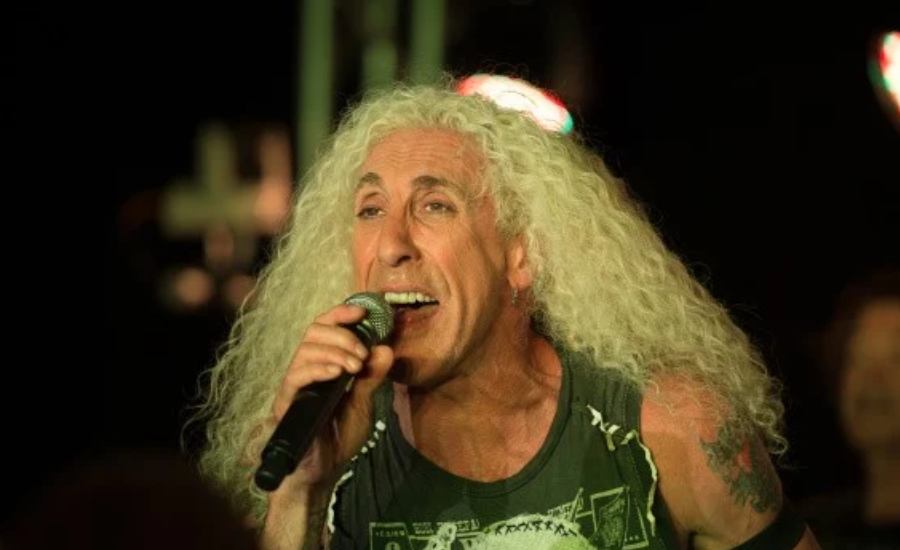Introduction
Dee Snider Net Worth a prominent name in the music industry, has left an indelible mark as the iconic frontman of the heavy metal band Twisted Sister. Beyond his music career, he has established himself as a multi-faceted entertainer, including roles as a screenwriter, actor, and radio personality. As of 2024, Dee Snider’s net worth is estimated to be $7 million, a testament to his decades-long contributions to entertainment and media.
Early Life And Education

Dee Snider, born Daniel Snider in 1955, hails from Astoria, Queens, New York, but was raised in Baldwin on Long Island. His upbringing was marked by a rich cultural heritage, with a Swiss mother and a Jewish father, giving him a unique blend of influences that would later shape his identity as an artist. Despite the diverse cultural background, Snider was raised in the Episcopal faith, which further broadened his perspective on life.
From an early age, Dee exhibited a natural affinity for music, a passion that was nurtured during his time at Baldwin Senior High School. There, he honed his vocal abilities through participation in the school’s concert choir and the prestigious All-State Chorus. His involvement in church choirs also helped refine his singing techniques, shaping his distinctive voice that would become one of the defining features of his career. These formative experiences laid the foundation for Snider’s future in music, providing him with the skills and discipline needed to succeed in a competitive industry.
The Rise Of Twisted Sister
Dee Snider’s path to rock stardom began in 1976 when he joined Twisted Sister, a band originally formed in Ho-Ho-Kus, New Jersey. The band was struggling to find its footing until Snider’s arrival, which marked a turning point in their sound and direction. His talents as both the lead vocalist and primary songwriter were instrumental in the band’s evolution, and Snider quickly became the driving force behind their creative output. His raw energy, theatrical stage presence, and sharp songwriting skills helped shape Twisted Sister’s iconic image.
The band’s early years saw mixed success, but it was with the release of Under the Blade in 1982 that Twisted Sister began to capture the attention of a wider audience. The album’s success in the UK and the band’s increasing visibility set the stage for their breakthrough. However, it was their second album, You Can’t Stop Rock ‘n’ Roll, released in 1983, that truly began to solidify their reputation as one of the top glam metal bands of the 1980s. This album featured a more refined sound, attracting an even larger and more dedicated fanbase.
But it was Stay Hungry (1984) that would become the definitive album of Twisted Sister’s career. Featuring some of the band’s most iconic anthems, such as “We’re Not Gonna Take It” and “I Wanna Rock,” Stay Hungry captured the rebellious spirit of the 1980s. These songs became anthems of defiance, resonating with listeners around the world and propelling the album to multi-platinum status in the United States. The music was loud, bold, and unapologetic—just like Snider’s larger-than-life persona. With his signature long, curly blonde hair, heavy metal-inspired makeup, and flamboyant stage costumes, Snider quickly became a cultural icon, embodying the excesses and the exuberance of the 1980s metal scene.
Twisted Sister’s success during the mid-1980s, combined with Dee Snider’s ever-expanding influence in the music industry, cemented his place in rock history. The combination of catchy, rebellious songs and Snider’s charismatic stage presence made the band one of the most memorable acts of the era, and their music continues to be celebrated by fans of all ages today.
Twisted Sister’s Later Years And Breakup
By the mid-1980s, Twisted Sister had achieved monumental success, but the band faced increasing challenges. Their fourth album, Come Out and Play (1985), went gold, but it didn’t capture the same level of attention as their earlier releases, especially their groundbreaking album Stay Hungry. As the music scene evolved, Twisted Sister found it harder to maintain their momentum, and internal tensions began to surface.
In 1987, the band released Love Is for Suckers, an album that was initially conceived as a solo project for Dee Snider. The album marked a shift in sound, with a more polished, mainstream rock style compared to the raw energy of their earlier work. Unfortunately, it did not replicate the success of Stay Hungry or even Come Out and Play. After a brief and lackluster tour, Snider decided to leave the band. His departure ultimately led to Twisted Sister’s dissolution. The band, once a fixture in the heavy metal scene, was no longer the powerhouse it once was.
Post-Twisted Sister Ventures

After leaving Twisted Sister, Dee Snider didn’t slow down. He formed Desperado, a new band that embraced a more hard rock sound, but it failed to capture the commercial success of his previous group. Undeterred, Snider went on to form Widowmaker, a project that saw him exploring heavier musical territory. However, despite Snider’s dedication, neither band achieved significant mainstream success.
Not one to be discouraged, Snider continued to create music. In the 1990s, he established Dee Snider’s SMFs, a tribute band to his own legacy, which toured widely and allowed him to reconnect with his fanbase while maintaining his reputation as an enduring figure in the rock scene.
Radio And Media Projects
As his music career evolved, Dee Snider began branching out into radio and media. In 1997, he launched The House of Hair, a syndicated heavy metal radio show that became a staple on airwaves across North America. The show provided fans with a platform to relive classic metal hits, featuring interviews with rock legends and offering a deep dive into the culture of heavy metal.
From 1999 to 2003, Snider hosted Dee Snider Radio on Hartford, Connecticut’s morning airwaves, where he showcased his charismatic personality and love for the genre. He interviewed some of the biggest names in rock, including Gene Simmons of KISS and Ozzy Osbourne, further cementing his place in the world of rock music.
Snider’s media career extended beyond radio. He lent his distinctive voice to various video games, including Jak and Daxter: The Precursor Legacy, which broadened his reach to a younger audience. His television credits include hosting VH1 specials, appearing on CMT’s Gone Country, and presenting Dead Art on Gallery HD. His ability to cross over into various media platforms has made him a multifaceted entertainer, with a presence that continues to resonate with audiences across different generations.
Dee Snider’s journey after Twisted Sister has been marked by a constant reinvention, from music to media, showing his versatility and determination to remain relevant in an ever-changing entertainment landscape.
Dee Snider’s Legacy And Lasting Influence
Dee Snider’s impact on the music, film, and media industries extends far beyond his time with Twisted Sister. His career, marked by a dedication to artistic freedom and a relentless pursuit of success, has made him a beloved figure in the entertainment world. Not only did he leave an indelible mark on the heavy metal genre with his work in Twisted Sister, but his ventures into film, radio, and television have further solidified his place as a cultural icon.
Film Career And Congressional Testimony
Dee Snider’s foray into the film industry is just another example of his creative versatility. In 1998, Snider took on the role of screenwriter for the slasher film Strangeland, which has since gained a cult following among horror fans. His ability to craft a compelling, chilling story earned Strangeland a unique spot in horror film history. Additionally, Snider made cameo appearances in several films, including Pee-wee’s Big Adventure (1985) and Private Parts (1997), both of which demonstrated his ability to bring humor and charisma to the big screen.
Beyond his acting and filmmaking, Snider also made waves in the political and cultural sphere. In 1985, he famously testified before Congress alongside Frank Zappa and John Denver, arguing against the censorship of music. His passionate defense of free speech and artistic freedom during the Parents Music Resource Center (PMRC) hearings solidified his position as not just a rock star but also a powerful advocate for artistic expression. Snider’s willingness to stand up for the rights of musicians has made him a champion of free speech within the music industry and beyond.
Personal Life And Real Estate Ventures

Dee Snider’s personal life has been just as dynamic as his professional career. Since 1981, he has been married to Suzette, a talented costume designer. Their strong and enduring relationship has resulted in a family that includes four children and several grandchildren. Snider’s eldest son, Jesse, has followed in his father’s footsteps, pursuing careers in both television and music.
In addition to his career in entertainment, Snider has made smart investments in real estate. In 2005, he invited fans into his personal space, showcasing his Long Island home on MTV’s Cribs. Over the years, his real estate ventures have reflected his success. In 2020, Snider sold a luxurious condo in Las Vegas for $583,000, further adding to his financial portfolio.
Legacy And Net Worth
Dee Snider’s enduring contributions to music, film, and media have earned him a net worth of $7 million as of 2024. His influence on the heavy metal genre, his advocacy for artistic freedom, and his ventures across various entertainment platforms have cemented his legacy as a cultural icon. From his groundbreaking work with Twisted Sister to his impactful radio shows, television appearances, and political activism, Snider’s influence continues to inspire and resonate with fans around the world.
While he may have risen to fame as the frontman of one of the most iconic heavy metal bands of the 1980s, his versatility in multiple industries has ensured that his legacy will endure for generations. Dee Snider remains a steadfast figure in the entertainment world, whose passion for music, art, and personal freedom will continue to leave an indelible mark on the cultural landscape.
Conclusion

Dee Snider’s remarkable journey from a church choir singer to an international heavy metal icon underscores his immense talent and versatility. As the charismatic frontman of Twisted Sister, Snider defined an era of music with anthems that continue to resonate globally. Beyond his success in music, he has left an indelible mark in radio, television, film, and as an advocate for artistic freedom. His $7 million net worth is a testament to his decades-long career and his influence across multiple industries. Snider’s legacy is one of resilience, creativity, and passion, inspiring fans and artists alike.
FAQs
1. What is Dee Snider’s net worth in 2024?
Dee Snider’s net worth is estimated to be $7 million as of 2024.
2. What are Dee Snider’s most famous songs?
Snider is best known for Twisted Sister’s hit songs “We’re Not Gonna Take It” and “I Wanna Rock,” both of which became anthems of the heavy metal genre.
3. What bands did Dee Snider form after Twisted Sister?
After Twisted Sister, Snider formed Desperado, Widowmaker, and later, Dee Snider’s SMFs.
4. Did Dee Snider work in radio?
Yes, Snider hosted The House of Hair, a syndicated heavy metal radio show, and Dee Snider Radio, a morning show in Hartford, Connecticut.
5. What is Dee Snider’s involvement in film?
Snider wrote and starred in the cult horror film Strangeland (1998) and appeared in films like Pee-wee’s Big Adventure and Private Parts.
6. How has Dee Snider contributed to artistic freedom?
In 1985, Snider testified before Congress against music censorship, defending artists’ rights to creative expression.
Stay in the know with the latest news and updates on Nftrandomize.co.uk
